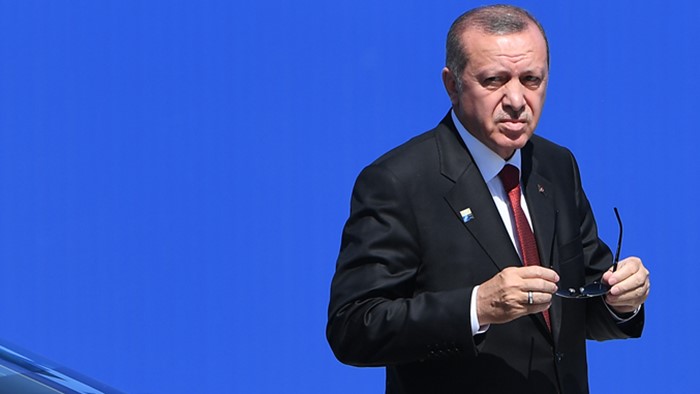As part of a witch-hunt targeting people linked to the faith-based Gülen movement, 154,694 individuals have been detained and 50,136 have been jailed since a failed coup attempt on July 15 in Turkey, the state-run Anadolu news agency reported on Sunday.
According to the report, based on Justice Ministry sources, 2,431 judges and prosecutors, 104 Supreme Court of Appeals members, 41 Council of State members, two Constitutional Court members, three Supreme Board of Judges and Prosecutors members, 6,982 military personnel including 167 generals, 8,816 police officers, 23 governors, 72 deputy governors, 112 district governors and 31,550 civilians and state workers are among the 50,136 jailed people.
A decision of non-prosecution was handed down for 2,763 of 154,694 suspects.
A total of 45,708 detainees have been released on judicial probation, 12,753 have been released by police and prosecutors and 7,430 have been released due to a lack of evidence, among them 1,312 military members, 1,247 police officers, nine deputy governors, three governors, three district governors, 195 judges and prosecutors, two Supreme Board of Judges and Prosecutors (HSYK) members, one Council of State member and eight Supreme Court of Appeals members.
A total of 7,112 people are at large, while 655 suspects are still in custody.
Justice Ministry Deputy Undersecretary Basri Bağcı recently informed Parliament that Turkish prisons are currently 9 percent over capacity, saying that some inmates have to sleep in shifts.
“There are currently 221,607 inmates in prisons. Prison capacity is 203,000, making them 9 percent over capacity,” said Bağcı during a presentation to the parliamentary Human Rights Investigation Commission.
Turkey experienced a military coup attempt on July 15 that killed over 240 people and wounded more than a thousand others. Immediately after the putsch, the Justice and Development Party (AKP) government along with President Recep Tayyip Erdoğan pinned the blame on the movement.
Fethullah Gülen, who inspired the movement, strongly denied having any role in the failed coup and called for an international investigation into it, but President Erdoğan — calling the coup attempt “a gift from God” — and the government initiated a widespread purge aimed at cleansing sympathizers of the movement from within state institutions, dehumanizing its popular figures and putting them in custody.
Contrary to accusations made by President Erdoğan and the Turkish government, the Foreign Affairs Committee of the UK Parliament concluded in March that Gülen and the movement he inspired as a whole were not behind the failed coup in Turkey.
The UK Parliament statement came a week after Germany rejected Erdoğan and the Turkish government’s accusations against the Gülen movement about July 15.
The head of Germany’s Federal Intelligence Service (BND), Bruno Kahl, said Turkey could not convince them that US-based Turkish-Islamic scholar Gülen was behind the failed coup in July.
Similarly, Devin Nunes, chairman of United States House Permanent Select Committee on Intelligence, said he has not seen any evidence showing Gülen’s involvement in the putsch in Turkey.
In addition, a report prepared by the EU Intelligence Analysis Centre (IntCen) revealed that the coup attempt was staged by a range of Erdoğan’s opponents due to fears of an impending purge.

